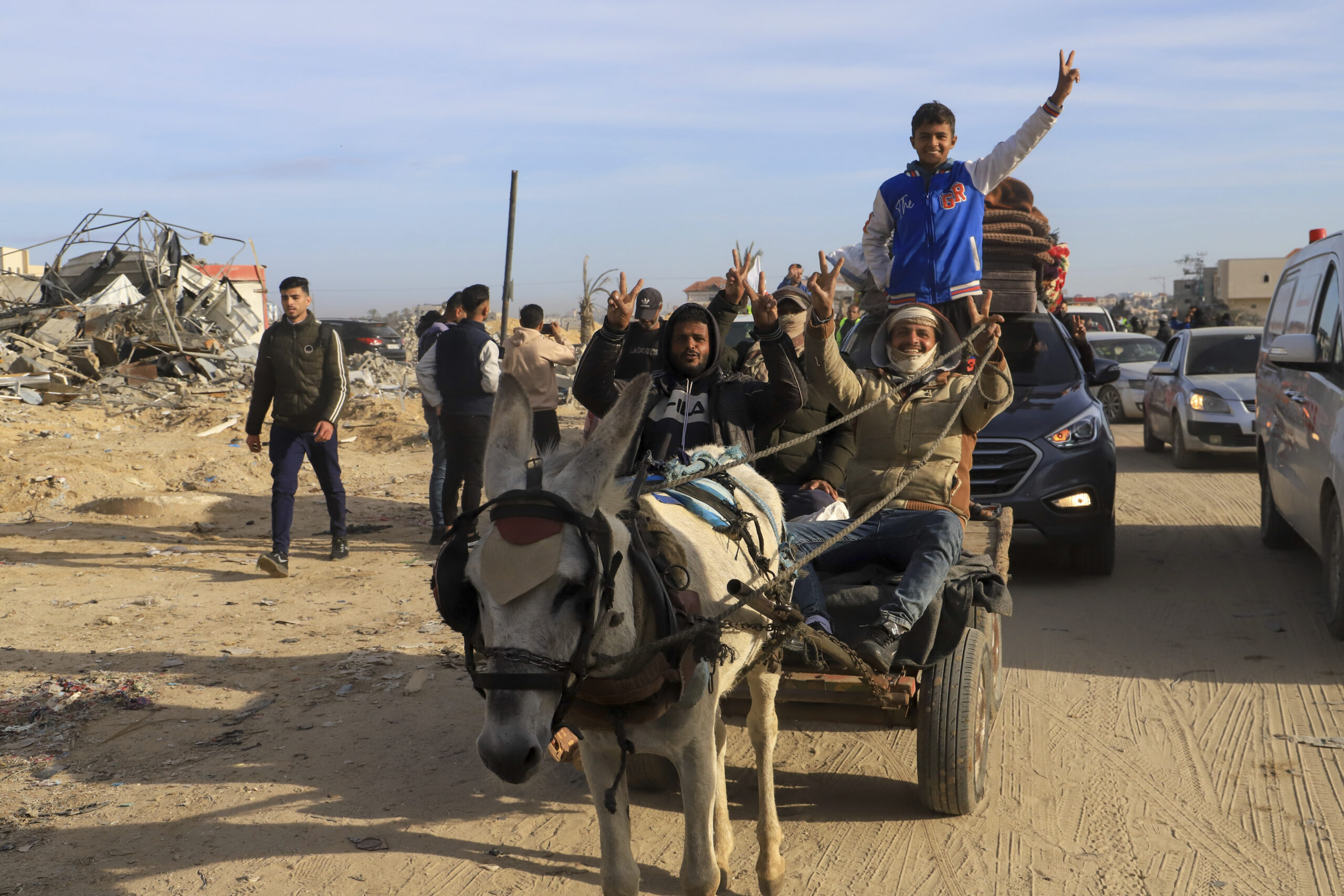
(RNS) — As the long-awaited ceasefire in Gaza begins, it is met with cautious hope. Families who have endured unspeakable suffering are daring to dream of a reprieve, yet they remain naturally skeptical. The delays and political wrangling leading up to this ceasefire reveal a troubling reality: This agreement, the very same deal proposed over a year ago, could have saved countless lives had it been accepted then.
The Qatari Prime Minister recently underscored this point, stating no lives needed to have been lost if Israel had accepted the deal when it was first proposed, calling it “basically 13-months of a waste of negotiating the details that has no meaning and is not worth a single life that we lost in Gaza or a single life of the hostages lost because of the bombing.” Reports further reveal that figures within the Israeli government — such as Itamar Ben-Gvir and Bezalel Smotrich — have been the primary blockers of this agreement, despite claims by U.S. officials like Antony Blinken that Hamas was obstructing progress. The reality is stark: Every moment of delay was a deliberate political choice, and those choices cost lives.
I had the opportunity to sit with Wael al-Dahdouh, Al Jazeera’s Gaza bureau chief, just a day before the ceasefire was first announced. Wael has lost everything — his wife, children and home. Yet, as we spoke, he radiated a profound optimism. His resilience in the face of unimaginable loss was deeply moving. As we talked, his son Hamza’s picture stared at us from the living room wall, a haunting reminder of what so many families in Gaza have endured. Wael mentioned something that has stayed with me: The trauma will deepen for families as they start to rebuild — not just their homes but their lives. The empty chairs, the missing voices, the absence of those who made those homes whole will compound their grief.
In Gaza, hope is not just a feeling — it is a survival mechanism. A friend there recently described the mood on the streets as one of jubilation, despite knowing full well Israel has violated ceasefires numerous times in the past and has already shown intent to return to war after phase two of this agreement. He explained that, in some ways, this premature celebration is a subconscious act of manifesting the best-case scenario. The people are not naïve; they are defiant. They are choosing to hope, even when every rational instinct tells them otherwise.
Meanwhile, outside of Gaza, political leaders continue to turn a blind eye to the human cost of their decisions. Donald Trump in his ceasefire celebration announcement on Truth Social mentioned his intent to expand the nefarious Abraham Accords, a diplomatic framework that has effectively erased the Palestinian struggle from global discussions. As I’ve written before, the Abraham Accords are not a pathway to peace — they are a roadmap for marginalizing Palestinians, entrenching their oppression under the guise of normalization.
The tragedy is that no one truly has the Palestinians’ best interests at heart. Neither Biden nor Trump, nor any other international leader, can claim to champion their cause. But the Palestinians do not rely on empty promises. They have survived under the worst of circumstances — not because of the benevolence of world powers, but because of their own resilience and their faith in God.
This resilience is their superpower. It is the force that has allowed them to endure relentless bombings, crippling blockades and the loss of entire generations. It is the reason why, even now, amidst ruins and rubble, they cling to hope. It is the reason why Wael al-Dahdouh, despite his grief, can envision a future for Gaza. And it is the reason why we must amplify their voices, not just their suffering.
I love the pictures in this post on X from journalist Abubaker Abed. We need to see more smiling Palestinian children who are alive and with their humanity.
It’s their time❤️❤️ pic.twitter.com/a7UFzJJn0T
— Abubaker Abed (@AbubakerAbedW) January 19, 2025
As we witness the first signs of calm, we must ask: Why did it take so long? Why were the lives of innocent civilians considered expendable in this brutal calculus? And most importantly, what can we do to ensure this ceasefire becomes a foundation for lasting peace, rather than another brief pause in a cycle of violence?
The ceasefire is a necessary first step, but it is not a solution. It is a Band-Aid on a wound that requires deep and sustained healing. Humanitarian aid must flow freely into Gaza, and the rights of Palestinians to live in safety and dignity must be upheld. There can be no peace without justice, and justice requires accountability. Those who perpetuate and profit from this cycle of violence — whether through political maneuvering or military aggression — must be held to account. And that includes our own government, which under both Democratic and Republican administrations, seems to always find a way to enable the further erasure of innocent Palestinians. So as we begin to hopefully cease genocide, we must also begin to truly find ways to cease apartheid and occupation once and for all.
